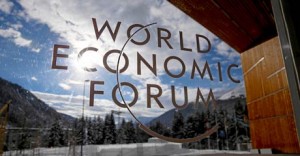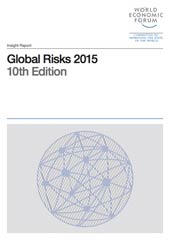Governing Council discusses way forward in Davos

Photo: World Economic Forum. By Photo Jolanda Flubacher.
The annual 2030 WRG Governing Council meeting was recently held on 22 January, during the World Economic Forum Annual Meetings in Davos, Switzerland. Council members reviewed the achievements of 2030 WRG to date and discussed the outlook for the year ahead. Acting Chair, Indra Nooyi, PepsiCo CEO, led the discussions on the role that 2030 WRG should play in addressing the daunting water challenges ahead, taking into consideration the global water agenda and the Sustainable Development Goals.
The Council members expressed their excitement about the diverse and large number of partners and organizations engaged with our country work programs as well as with some of the early concrete results from our work in places such as South Africa, Maharashtra and Peru. The discussions also touched upon whether the work program should focus on broadening the scope rather than deepening our reach and impact further and most importantly, how to better measure and track these results and progress.
Magnifying our reach
The Council members spoke in favor of magnifying the reach of our work by including more sectors to the governance of 2030 WRG, beyond the current food and beverage industry members. The Council also welcomed a larger representation of civil society organizations to become part of its global leadership. The New Year will soon reflect these changes as the team is working closely with support from our current partners to bring new partners on board.
Importance of collaboration
Participants around the table were also pleased to see that the various recommendations from the Dalberg evaluation were already being implemented at various levels. The Governing Council members stressed the importance of continued collaboration with our partners on the ground. With currently 7 national multi-stakeholder platforms operational, and 177 active partners across our countries of operations, actively developing proposals together in 21 working groups, significant progress has already been made in this area.
Paving the way forward
Governing Council member and South African Minister of Water and Sanitation, Nomvula Mokonyane, said: “In the 2030 WRG South Africa Strategic Water Partnership Network we appreciate this common platform for messaging around water issues. This is where we can bring in water and sanitation topics related to raising awareness, communicating and reaching out to critical players and inviting them to become part of our discussions and working groups, such as the women from rural areas. This approach is beginning to yield results and we are now engaging with financial and research institutes on a number of topics, including innovation. But in the end, success depends on the political will and commitment of a government. We need more political leaders to take things forward.”
The Global Water Agenda
The event was followed by a session on the global water agenda where participants discussed the mobilization of the private sector to step up to support, partner and leverage new models of cooperation to implement the ambitious (water related) Sustainable Development Goals. 2030 WRG tries to leverage its work through our partners. Find out more about our partners »
Water number 1 global risk
The Global Risk Report 2015 has identified water as the number 1 global risk of highest concern. This will be the 3rd consecutive year, in the top three. The true measure of success of the Sustainable Development Goals will fall squarely on implementation and action. This will prove to be a window of opportunity for 2030 WRG to ignite a fresh push on this agenda. Our work programs can help manage that risk by making Governments, the Private Sector and Civil Society work together to develop concrete proposals for policies, programs, projects that will reduce these risks in terms of available water quantity and water quality. Programs we are currently working on in countries, include:
• Water use efficiency (agriculture, industry, urban)
• Wastewater reuse/recycling
• Financial solutions
• Economic incentives
• Increased storage capacity

